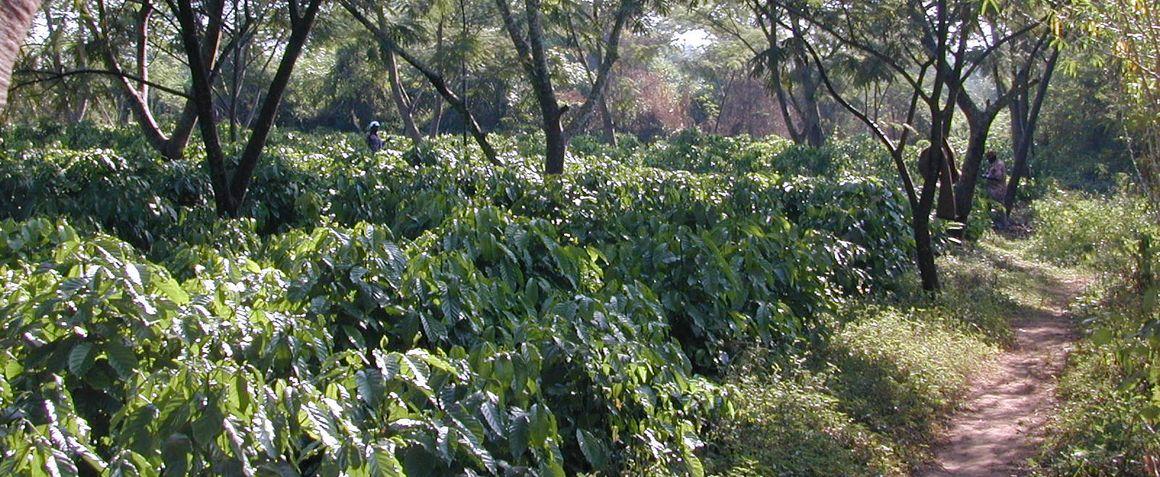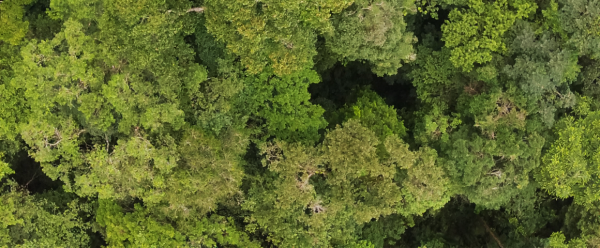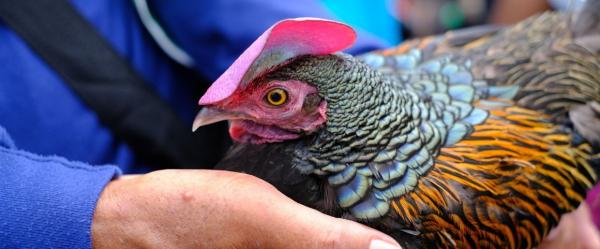Science at work 9 April 2024
- Home
- Press area
- Press releases
- Agroforestry Robusta coffee Uganda
In the light of climate change, Uganda has begun growing Robusta coffee in agroforestry systems

Production de café Robusta en agroforesterie en Ouganda (région de Mukono). © F. Pinard, Cirad
"In Uganda, five million people (including 1.7 million smallholders), in other words almost 10% of the country's population, depend on Robusta coffee growing", says Pierre Marraccini, a CIRAD researcher based in Uganda who specialises in coffee. "This agricultural activity is therefore strategically important, but it is under threat from climate change and increasingly irregular rainfall patterns. Agroforestry is a way of mitigating periods of extreme drought and diversifying farmers' incomes, thanks to the wood, fruit or seeds produced." Uganda is currently the world's fourth largest Robusta producer, and is aiming to quadruple production by 2040.
The ROBUST project to support Robusta coffee (Coffea canephora) agroforestry systems as a way of adapting to and mitigating climate change in Uganda was officially launched in September, and represents a major investment. It has 4.5 million euros of EU funding, via two programmes: GCCA+ (Global Climate Change Alliance) and DeSIRA (Development-Smart Innovation through Research in Agriculture).
ROBUST aims to design improved, agroforestry coffee production systems capable of adapting to, mitigating and buffering the impacts of climate change. Between now and 2025, more than 50 000 coffee producers will receive agronomic and socioeconomic support. The project will also include forest surveys to find wild Robusta trees and the creation of new varieties more capable of coping with climate change.
Participatory, multipartite approaches will be adopted to foster the adoption of coffee agroforestry as a means of mitigating the impact of climate change. ROBUST aims to transform coffee growing on every level, from farm to strategy decision-making.
A mixed Ugandan-international consortium
The ROBUST project associates eight partners within a consortium. Four partners are from Uganda: NaFORRI (National Forestry Resources Research Institute), NaCORI (National Coffee Research Institute), Makerere University in Kampala and UCFA (Uganda Coffee Farmer Alliance). The other consortium partners are ICIPE (International Centre of Insect Physiology and Ecology, Kenya), Strand Life Sciences (India), and IRD and CIRAD (France).
The project also involves Wageningen University (Netherlands), the University of Padova (Italy), the International Women's Coffee Alliance (IWCA), the Bundibugyo Cooperative (Uganda) and Ecocharcoal Ltd. (Kenya).
The DeSIRA (Development Smart Innovation through Research in Agriculture) initiative is an EU programme of agricultural research in the global South. Against a backdrop of ever-faster climate change, it is intended to pinpoint innovations that will transform the agricultural sector and pave the way for resilient, sustainable agrifood systems. To this end, DeSIRA is funding a number of research projects in partnership with countries in the global South, primarily targeting crop and livestock farmers, but also producers' organizations, NGOs, processors, consumers, etc.
Find out more about the DeSIRA projects coordinated by CIRAD, chosen following the programme's first call for projects.



























